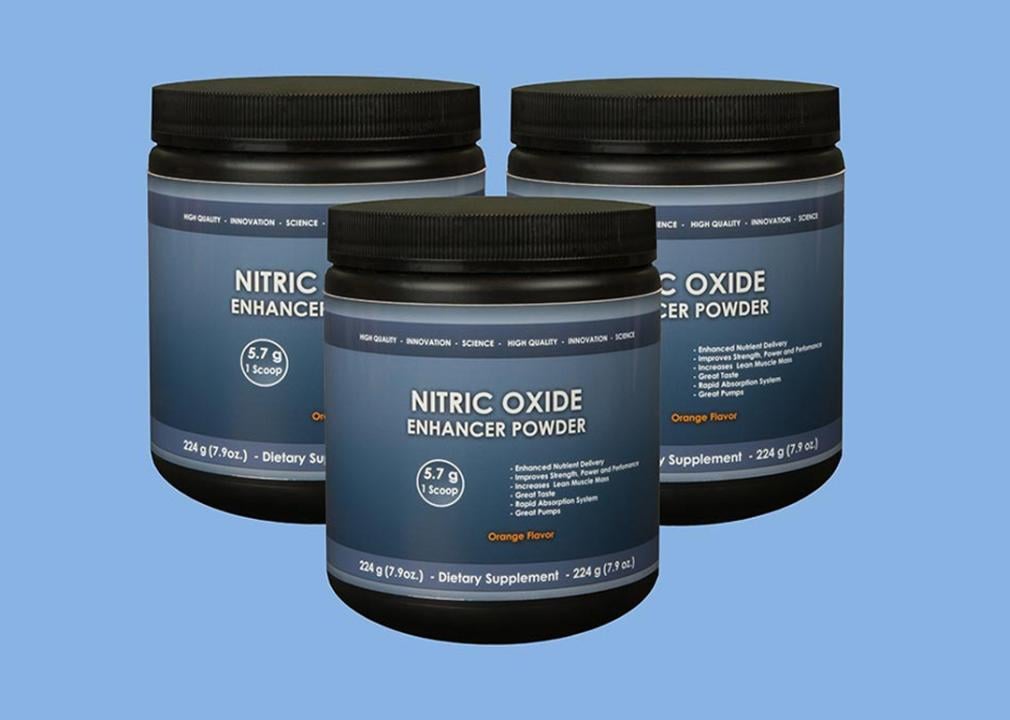How nitric oxide supplements can enhance your sex life
Published 4:00 pm Monday, December 23, 2024
How nitric oxide supplements can enhance your sex life
As many remember from high school chemistry class, nitric oxide is a gas naturally produced by the body that promotes blood vessel dilation and, in doing so, encourages blood flow. And while every bodily system relies on optimal blood flow, the ability to get and maintain an erection is especially affected by this. Translation: Nitric oxide can play a key role in erectile function and well-being.
But what about nitric oxide supplements? Can they help with erectile dysfunction, or ED, and, well, function? Ro shares information about nitric oxide supplements—but first, a quick refresher and a bit about nitric oxide for ED.
Key Takeaways
- Nitric oxide is a gas composed of nitrogen and oxygen that’s naturally produced by the body and is essential for blood vessel dilation, making it key for erectile function.
- Nitric oxide supplements contain ingredients that stimulate nitric oxide production in the body.
- While nitric oxide can be obtained from diet alone, nitric oxide supplements may offer additional benefits. It’s best to talk to a healthcare provider before trying them.
What Is Nitric Oxide and What Does It Do in the Body?
As the name suggests, nitric oxide is a combination of nitrogen and oxygen. It’s a gas that’s naturally produced in the body and an important chemical messenger. Meaning, it helps different systems in the body communicate with one another. One of the most essential roles of nitric oxide, however, is promoting blood vessel widening. It does this by activating an enzyme found in the muscle cells of the blood vessels; this, in turn, signals the body to relax or widen blood vessels (a process called vasodilation), which lowers blood pressure and encourages blood flow.
Trending
While it plays a role in, to quote scientists, “virtually every cellular and organ function” in the body, nitric oxide can be especially important for erectile well-being and function—after all, getting and maintaining an erection is largely all about proper blood flow.
What Are Nitric Oxide Supplements?
First things first: Nitric oxide supplements don’t actually contain nitric oxide, but they do contain ingredients that stimulate nitric oxide production in the body.
Because nitric oxide supplements aren’t regulated by the US Food and Drug Administration (FDA) the same way as prescription medications, the specific ingredients (and their amounts) vary depending on the product. That being said, most nitric oxide supplements contain a blend of L-arginine and L-citrulline. Found naturally in the body and in certain foods, L-arginine and L-citrulline are amino acids, i.e. the building blocks that form nitric oxide.
In addition to L-arginine and L-citrulline, nitric oxide supplements may also contain an assortment of other amino acids, vitamins, and plant extracts. Nitric oxide supplements come as capsules, gummies, and powders and can be found at health stores, pharmacies, or online.
Five Benefits of Nitric Oxide Supplements
Because of the impact nitric oxide has on the vascular system, the benefits of this powerful molecule can be seen all over the body. The easiest way to get nitric oxide is through natural foods, such as leafy green vegetables, celery, radishes, and beetroot—plus, doing so can help to avoid potential side effects associated with nitric oxide supplements. That said, there is compelling research on the health benefits of nitric oxide supplements.
May improve erectile dysfunction
Trending
Nitric oxide is essential to penile function, helping to facilitate erections by signaling blood vessels to widen and smooth muscles in the penis to relax. ED can be caused by many factors, including low nitric oxide levels—and that’s where nitric oxide supplements may come in handy.
Studies have found that nitric oxide supplements may aid in treating ED by promoting nitric oxide production and increasing the amount of blood flowing to the area. Another study noted significant improvements in erectile function for participants with mild-to-moderate (but not severe) ED after taking L-arginine supplements for three months.
May help with high blood pressure
Low levels of nitric oxide have been linked to conditions such as heart disease and hypertension (high blood pressure). And this makes sense considering the impact nitric oxide has on blood flow. Studies have found that increased L-arginine in the body, whether through diet or supplements, can help significantly lower blood pressure. High blood pressure is also a risk factor for ED. Using nitric oxide supplements to help lower blood pressure may have the added benefit of better erections.
May boost heart health
Maintaining blood pressure in a healthy range is essential for heart health. Studies have found nitric oxide supplements to be beneficial for the cardiovascular system, improving blood flow, reducing stiffness of arteries, and lowering blood pressure—all of which can help lighten the heart’s heavy workload.
That said, much of the research out there is animal-based. More studies need to be conducted to determine the therapeutic potential of nitric oxide supplements for cardiovascular health in humans.
May amp up exercise routine
Many nitric oxide supplements are often marketed towards performance enhancement (this time, in terms of exercise).
Multiple studies have investigated the effects of nitric oxide supplements on exercise and muscle recovery, finding that the increased blood flow triggered by nitric oxide may deliver more oxygen and nutrients to working muscles. It may also help replenish energy stores between exercise sets and remove cellular waste so muscles can recover faster. Feeding oxygen-rich blood to muscles and promoting healing can ultimately help muscles perform better, which can reduce fatigue, build strength, and increase endurance during workouts. That said, research is mixed and the effects may also depend on when the supplements are taken; studies have found that taking L-arginine supplements right before exercise had no effect on strength performance or nitric oxide levels.
Exercise and nitric oxide also have a two-way relationship. Physical activity can increase the production of nitric oxide, so theoretically, supplementation for exercise could stimulate the body to produce more of the compound naturally.
May aid diabetes management
This is another place where more research is needed. But nitric oxide supplements could potentially benefit people living with type 2 diabetes. Over time, insulin resistance and high blood sugar—two characteristics of diabetes—can damage blood vessels and impact nitric oxide production, which L-arginine supplements may help counter. By improving circulation and reducing tissue damage, nitric oxide supplements could also prevent or slow down some diabetes-related complications, such as heart disease and peripheral neuropathy (nerve damage). Of course, larger studies are needed to confirm these effects in humans.
So, Do Nitric Oxide Supplements Help ED?
More research is needed before it can be said for certain if nitric oxide for ED works, but there is evidence to support it as a potential option for those interested in taking a supplement. Because nitric oxide is fundamental to getting an erection (and low levels of nitric oxide are linked to erectile issues), using supplements that can boost nitric oxide production may lead to benefits in the bedroom.
That said, the available positive findings on nitric oxide for ED suggest it’s only useful for mild-to-moderate ED that is the result of vascular disease and not severe sexual dysfunction. Keep in mind that the best (and safest) way to determine whether nitric oxide supplements may address “down there” difficulties is by consulting a healthcare provider.
Side Effects of Nitric Oxide Supplements
In general, supplements with L-arginine and L-citrulline—aka nitric oxide supplements—are considered safe when used in appropriate amounts. But they, like any other potential treatment, can cause side effects including:
- Bloating
- Headache
- Heartburn
- Heart palpitations
- Nausea
- Stomach pain
- Vomiting
It’s worth noting that common side effects of nitric oxide supplements seem to be dose-dependent; lower doses may cause fewer adverse reactions while higher doses may increase the risk of gastrointestinal distress, in particular.
And while most side effects can be described as mild-to-moderate, nitric oxide supplements can also pose a risk for more serious side effects in people with certain health conditions, such as liver disease and low blood pressure. They can also interfere with a handful of medications, including those for diabetes and blood pressure.
This is why it’s crucial to speak to a healthcare provider before taking nitric oxide supplements, especially for those already taking medication(s) or have a preexisting medical condition. Also, keep in mind the lax regulations around dietary supplements; even if a product contains “all-natural” ingredients, it’s difficult to know exactly how much of each ingredient is actually being consumed. Read the label of any supplements carefully and check the recommended daily value of all of the ingredients to ensure a safe dosage. If in doubt, discuss the details with a healthcare provider.
Alternatives to Nitric Oxide Supplements for ED
For those in need of a tried-and-true treatment for ED, the best bet may be FDA-approved oral medications known as phosphodiesterase type 5 (PDE5) inhibitors. Similar to nitric oxide, PDE5 inhibitors work in part by increasing blood flow to the penis, which promotes stronger, longer-lasting erections.
Common PDE5 inhibitors (all of which require an Rx from a healthcare provider) include:
- Viagra (sildenafil)
- Cialis (tadalafil)
- Vardenafil (formerly available as brand name Levitra)
- Stendra (avanafil)
Viagra Important Safety Information: Read more about serious warnings and safety info.
Cialis Important Safety Information: Read more about serious warnings and safety info.
While the aforementioned pills are often considered the first line of treatment for ED, some PDE5 inhibitors are also available in other formulations.
Along with medication, there are several lifestyle changes that can play a large role in reducing ED symptoms. These include:
- Exercising regularly. Physical activity can help improve cardiovascular disease, which is important for supporting healthy blood pressure and blood flow—both of which are components of erections. Working out can also boost the production of nitric oxide—which can also contribute to erectile function and health.
- Eating a healthy, balanced diet. Maintaining a healthy, nutritious diet can reduce several risk factors for ED, such as type 2 diabetes, high blood pressure, high cholesterol, and obesity. This means eating lots of fruits, vegetables, and whole grains and reducing intake of processed foods, sugars, and red meat.
- Getting enough sleep. A growing body of research suggests short sleep (i.e. regularly getting six or fewer hours per night) may be a risk factor for ED. Lack of shut-eye can also increase the odds of developing obesity, high blood pressure, heart disease, and diabetes—all of which are conditions that affect blood flow and, in turn, boost the risk of ED. So, consider hitting the hay a bit earlier and prioritizing sleep hygiene to try to get at least 7-9 hours of sleep per night.
- Taking care of mental health. Stress and mental health disorders, such as anxiety and depression, can take your head out of the game and negatively affect sexual function. Stress management techniques, such as meditation, deep breathing, and mindfulness, can all help reduce stress and could improve erections if the underlying issue is related to mental health. If these methods aren’t enough to address any mental challenges (or more assistance is needed from an expert), consider seeing a mental health professional, such as a therapist.
![]()
This story was produced by Ro and reviewed and distributed by Stacker.





